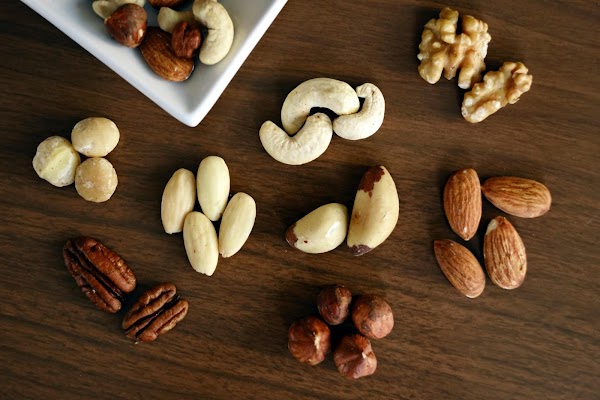PROTEIN FOR HEALTH (Health Fitness)
PROTEIN Health Fitness
 |
| Protein Health Fitness |
Protein, the most complex substance in all living things. Proteins have great nutritional value and are directly involved in the chemical processes necessary for life. The importance of proteins was recognized by chemists in the early 19th century, including the Swedish chemist John Jacob Bergelis, who coined the term protein in 1838 to mean "gaining first place" from the Greek protozoa. Proteins are species-specific; That is, the protein of one species is different from that of another species. They are organ-specific; For example, in the same organism, muscle proteins are different for the brain and liver. A protein molecule is much larger than a sugar or salt molecule and contains many amino acids that form long chains, like beads arranged on a string. There are 20 different amino acids that occur naturally in proteins. Proteins of similar function have the same amino acid composition and order. Although it is not yet possible to explain all the functions of proteins from their amino acid range, the interrelationships between structure and function are responsible for the properties of the amino acids that make up a protein. Health Fitness Plants can synthesize all amino acids; Animals need all life but they can’t. Plants grow in an inorganic nutrient medium that provides the nitrogen, potassium and other nutrients they need to grow. In the process of photosynthesis they use carbon dioxide in the air to form organic compounds such as carbohydrates. However, animals need to get organic nutrients from external sources. Because the protein content of most plants is low, animals such as ruminants (e.g., cows) that consume only plant material need large amounts of plant material to meet amino acid requirements. Non-nudes, including humans, derive protein mainly from animals and their products, e.g., meat, milk and eggs. Bean seeds are widely used to make inexpensive protein-rich foods (see Human Nutrition). Health Fitness The protein content in animal organs is usually higher than in blood plasma. For example, muscle contains 30 percent protein, liver 20 to 30 percent, and red blood cells 30 percent. A high percentage of protein is found in hair, bones and other organs and tissues with a low percentage of protein. The amount of free amino acids and peptides in animals is much less than the amount of protein; Protein molecules are produced in cells by the gradual arrangement of amino acids and are released into body fluids once synthesis is complete. The high protein content of some organs does not mean that the importance of proteins is related to their amount in an organism or tissue; In contrast, some important proteins, such as enzymes and hormones, are present in very small amounts. The importance of proteins is mainly related to their function. Thus all the enzymes identified so far are proteins. Enzymes that catalyze all metabolic reactions allow the conversion and degradation of chemicals, proteins, nucleic acids, carbohydrates and lipids into other substances that are essential for the life of an organism. Life is not possible without enzymes. Most proteins are hormones that have important regulatory functions. In all vertebrates, the respiratory protein hemoglobin acts as an oxygen carrier in the blood, transporting parts of the lungs from the lungs to body parts and tissues. A large group of structural proteins maintain and protect the anatomy of animals. Health Fitness
HEALTH BENEFITS OF PROTEIN Health Fitness
 |
| Health Benefits Of Protein Health Fitness |
It is important to eat enough protein to meet our body's needs for many functions in the body. However, there is evidence to suggest that in some cases protein intake in excess of the required level may provide additional health benefits.
Protein and weight control Eating a diet high in protein has shown that our satiety (also known as satiety) is higher than foods high in fat or carbohydrates. There is good evidence from short-term studies that a high protein diet (ie 1.2 - 1.6 g / kg 84 per 70 kg adult; 84 - 112 g per day) can help with total caloric intake and rapid weight loss. However, the evidence for long-term weight management is less clear. As with all diets, a high protein diet is only effective when stuck, which can be difficult for some and partly explain the limited benefits observed for long-term weight management due to low adherence.
Protein and sarcopenia Sarcopenia is a progressive loss of muscle and physical function commonly associated with adulthood. Sarcopenia is associated with increased cheating, waterfall risk, functional decline, and early death. Since protein is so essential for muscle repair and maintenance, it is not surprising that low protein intake is associated with an increased risk of developing sarcopenia. Similarly, increased physical intake and increased physical activity reduce our lifespan, reducing the risk of sarcopenia and skeletal disorders. Health Fitness
Protein and athletic performance Protein has long been associated with athletic performance. Protein plays an important role in repairing and strengthening muscle tissue after exercise. Although protein is important for building muscle, its benefits should be considered in the context of a whole diet that contains carbohydrates, fats, vitamins and minerals. Optimal protein intake depends on the type of exercise (such as endurance or resistance training), duration and intensity and does not always improve. Intake of 1.4–2.0 grams of protein per kilogram of body weight per day (such as 140 grams per day for an adult of 70 kg) is sufficient to meet the needs of most exercisers. Athletes should aim to achieve protein intake through a balanced diet, use protein supplements for people who need to keep high in protein, but limit total calorie intake. Prevention Protein is involved in recovery from direct injury. Those who have recently been injured should take advantage of this fact and increase their total protein intake to aid in the recovery process. Protein helps to repair damaged tissues. So protein deficiency calls for a slower, less effective healing rate in your body. The reason for this is that when your body does not have enough protein, it has more time to make collagen (collagen synthesis helps to heal wounds and repair tissues). This is an amino acid called glutamine, which is achieved by taking a protein that stimulates collagen synthesis. So without enough protein you will not have enough glutamine to start proper collagen synthesis, which can help heal wounds.
Optional IMMUNE function Your immune system is made up of proteins and relies on more proteins (protein synthesis) to function effectively. Generally, if you have a protein deficiency in your diet, it can weaken your immune system. Proteins make up the immunoglobulins or antibodies of your immune system and are part of the interferons that support the cells of the immune system and attack viruses, bacteria or other foreign substances in the body. Why is this important? Well, for each antigen that attacks your body, you have a different and different antibody to fight against. Antibodies basically allow these antigens to destroy other immune system cells. Antibodies have the ability to detect viruses and bacteria, allowing your immune system to react faster and expel foreign substances from the body before any real damage can occur. Now, without enough protein, the body's ability to produce antibodies is disrupted. Inadequate protein intake can also adversely affect your T-cell system. There are 2 main players in this T-cell system, the killer T-cells that destroy germs or cancer-infected cells and the helper T-cells that "help" the immune response. So if our T-cell system is not functioning properly it can cause frequent infections in the body. As a side note, it has been shown that the personal amino acid "arginine" is essential in situations where the immune system compromises by improving your ability to fight infection, as we have immune function. To get more arginine, you need to eat more protein! Health Fitness Your habits Hormones are chemicals produced by the glands in the form of signaling molecules that help them communicate and coordinate activities throughout the body. They also help control many of the body functions that your various organs have. Protein plays an important role in the formation of certain hormones - peptides or protein hormones. These protein hormones are hormones that bind to receptors outside the cell and stimulate the response within the cell. Proteins of hormones such as insulin help in the metabolism of glucose and are highly effective in regulating blood sugar concentrations. Hormones can also activate muscle growth by increasing protein synthesis or by reducing protein breakdown. Therefore, if there is a protein deficiency, your body does not have the substances needed to build and support hormones.
All ENZYMES Enzymes are proteins that are used as catalysts to reduce the activation of chemical reactions in our bodies. In order to work properly, M by M. Health Fitness

